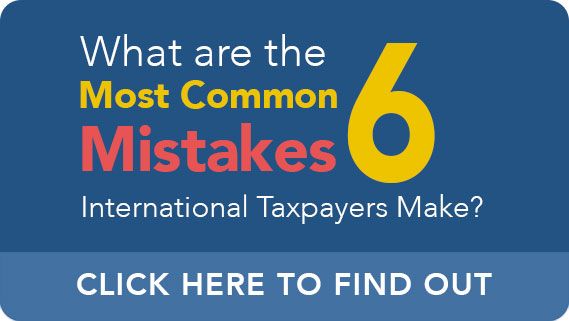Accountant for Sellers of US Real Estate Property that Require (FIRPTA) Withholding
Like most provisions of the United States tax code, the requirements laid out in the Foreign Investment in Real Property Tax Act of 1980 seems designed to trip up even the most well-meaning taxpayer. It is a lengthy piece of legislation and carries some significant financial penalties for those who fail to follow it, but compliance is simpler than you may think. In practice, FIRPTA sets some clear guidelines – albeit with some convoluted exceptions – for withholding taxes in a sale of property from a foreign person or entity.
Regardless of how simple or complex your case may be, the certified public accountants at U.S. Tax Help are ready and willing to help you navigate this process. Led by Ted Kleinman, a CPA with more than 30 years’ experience working in international tax law, the team at U.S. Tax Help is eminently qualified to assist you. Call us today at (541) 923-0903 and set up your first consultation, no matter where you live.
Sellers and the Foreign Investment in Real Property Tax Act of 1980
The reasoning behind the Foreign Investment in Real Property Tax Act of 1980, or FIRPTA, was that the easiest way for the U.S. government to collect taxes on the sale of property by foreign parties was to compel the American buyer to set aside the money. This allowed the United States to avoid the messy legal implications of forcing another country’s private citizens to pay U.S. taxes on a sale.
Because the law places the burden on the buyer to withhold, report, and pay the tax, the person selling the property has little in the way of paperwork to maintain compliance with FIRPTA, though the law will likely make a dent in the seller’s bottom line. The seller is also required to file a tax return with the U.S. government with the relevant information about the transaction in order to receive credit for the taxes withheld.
Types of Property Sales Affected By FIRPTA
FIRPTA spells out in clear terms the kinds of assets that qualify as “real property interest” under the law. Essentially, the term covers all the typical types of real estate – land, buildings, etc. – and some atypical types, including mines, wells, and natural deposits, along with personal property used with real property, such as farming equipment.
This property or interest must be located in the United States or the U.S. Virgin Islands, though any interest as a creditor does not fall under FIRPTA. However, interest in an American corporation likely does qualify, with a few exceptions. A knowledgeable CPA can go into further detail and describe any exceptions or exclusions for which you may qualify.
Rates of Withholding in FIRPTA Transactions
In most cases, the amount withheld in the sale is equal to 15 percent of the gross amount agreed upon by both parties. This amount is to be set aside by the buyer for conveyance to the Internal Revenue Service. A few notable exceptions:
- If the property being sold will be the buyer’s primary residence and the total value is less than $300,000, no amount need be withheld for the IRS.
- If the property will be the buyer’s residence and the value is more than $300,000 but less than $1,000,000, the rate to be withheld is 10 percent instead of 15 percent.
- If the IRS has issued a withholding certificate adjusting the tax rate of your particular transaction, the buyer would set aside the new amount instead of the standard 15 percent.
As seen above, the sale of a primary residence is often partially or fully exempt from FIRPTA withholding, which can save you a significant sum. However, since this is often not the case, you may have to apply for a withholding certificate from the IRS.
In short, a withholding certificate is an official document stating that you owe less than the usual amount of taxes on your sale. The buyer, buyer’s agent, or seller can apply for a certificate; according to their website, the IRS will usually act on a request within 90 days of receipt. The application must include the Taxpayer Identification Numbers of all parties involved in the transaction, and the buyer must be notified in writing within a day of the transfer of any interests. This application process can be further explained by an accountant with a background in international tax codes.
Skilled Tax Specialists Available Anywhere in the World with US Tax Help
Navigating the treacherous waters of the American tax system can be more than a little tricky for the layperson. Not only are the laws convoluted, but the penalties for mistakes can be steep, regardless of whether they were intentional. Don’t leave your financial future to chance; contact the experienced team of CPAs at U.S. Tax Help and let us help you through the process. To set up your first consultation, call us today at (541) 923-0903.
